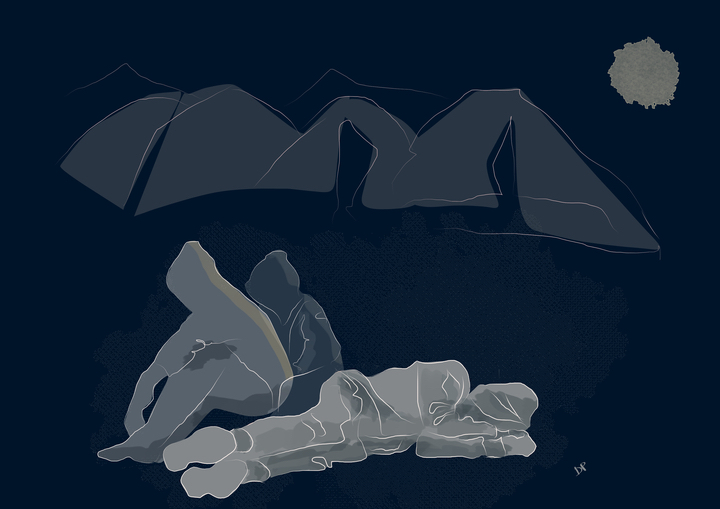Why are Azerbaijani citizens stuck in a children's summer camp in Dagestan?
Azerbaijani citizens cannot return home
As Azerbaijan continues to loosen coronavirus-induced restrictions, many of its citizens remain abroad and unable to return home amid the closed land borders.
Near the Russian-Azerbaijani border, over 400 people are awaiting their return to their homeland. These Azerbaijani citizens live on the territory of a children’s summer camp which the local authorities have converted into a temporary hostel for Azerbaijani migrants.
Border crossing restrictions are imposed by the Azerbaijani side. Despite the fact that the indicators associated with the Covid-19 pandemic have improved significantly since the beginning of the vaccination campaign this spring, Azerbaijan is not letting everyone back home.
Air traffic between Russia and Azerbaijan was restored in February, but, according to the testimony of people who are waiting for the opening of the land border, the cost of a plane ticket is not something everyone can afford.
The return flow of people also goes through the corridor on the Azerbaijani-Russian border. On May 17 and 18, 639 Russian citizens who were forced to stay in Azerbaijan due to the pandemic returned home through the Yarag-Kazmalyar international customs checkpoint in Dagestan.
Dagestan is not ready to receive and accommodate Azerbaijanis
The camp in which Azerbaijanis temporarily live is called Ogonyok and it is located in the Kaitag region of Dagestan, one of Russia’s republics. This week the camp was visited by journalists of the Caucasian Knot outlet. By the time of their visit, there were about 400 citizens of Azerbaijan. The press service of the district administration noted that the number of Azerbaijanis is constantly changing, since, on the one hand, some of them are returned home every week, but on the other, people continue to arrive from various regions of Russia.
According to the State Committee of Azerbaijan for Work with the Diaspora, as of May 17, after the closure of the borders associated with the threat of the spread of coronavirus, over 7,000 Azerbaijanis were exported from Russia to Azerbaijan.

As of today, the epidemiological situation in Russia is much worse than that of Azerbaijan. The other day local authorities announced that the number of hospitalized people in the republic had reached its all-time highest over three months. Azerbaijan, on the other hand, is lifting coronavirus restrictions.
The Dagestani authorities claim that the epidemiological situation in the camp for migrants is carefully monitored: “Thermometry is carried out every day, the Ministry of Emergency Situations disinfects the buildings every day”, said Magomedsalam Khalilov, director of the children’s summer camp.
Deputy Chairman of the National Cultural Autonomy of the Azerbaijanis of Makhachkala, Eldar Osmanov, in his appeal to his fellow countrymen, asked them not to come to Dagestan until the restrictions on crossing the Russian-Azerbaijani border are lifted. “I would like to inform you that Dagestan is not ready to receive and accommodate a large number of Azerbaijani citizens”, Osmanov’s address, Novoe Delo reported on June 19.
Eldar Osmanov also called on those Azerbaijanis who have already arrived at the camp to observe sanitary and public safety and hygiene measures, the publication says.
Months in a tent
Azerbaijan closed its border with Russia in April of 2020. Azerbaijanis who could not return home had to settle in a tent camp near the border in the village of Kular.
For many, a place in a tent was the only possible overnight stay – people had no money to rent a house, no acquaintances or relatives who could shelter them in Dagestan. Many had to spend several months in a tent, people complained about unfair decisions – those with some connections were allowed to cross the border, while people who had been waiting for months in a tent were being left behind.
In an attempt to stop this, residents of the tent camp held protests (sometimes they spilled over into clashes with the police) and even went on a hunger strike. Human rights activists stated that Azerbaijan has no right to delay the return of its citizens and that the compelled residents of Kular have every reason to file a claim with the European Court of Human Rights.



















